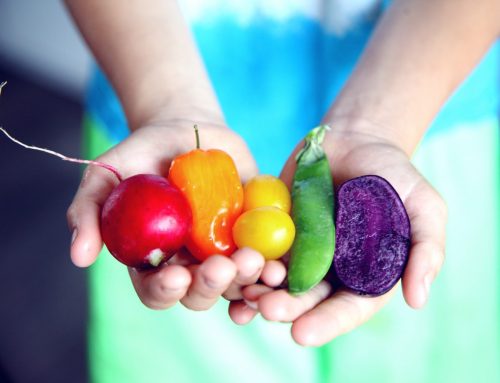Take bananas as an example. Mums like me who are the largest spenders in grocery stores, like to put bananas in kids lunch boxes. But they don’t fit right if they are too big, so we pick out the smaller ones. Over time, as everyone starts to do this, the retailer can tell that the big bananas aren’t selling. So they tell their suppliers they only want the lunch-box sized bananas. The suppliers oblige, and start asking producers to provide only lunch-box bananas. It’s good times so the farmers can pick the bananas at just the right moment and get a premium price for them.
The whole situation is bananas!
But then something happens – a massive rain event, say – and the bananas grow too big. The retailer won’t buy them because they can’t sell them and the farmer who had no control over the weather doesn’t get any money. Despite outlaying the same amount and working as hard as she normally would for the lunch-box bananas she gets nothing. She might get to sell the big bananas off cheap. If she’s lucky she’ll break even on the cost of production. If not, she chops them up and ploughs them back into the field to fertilise the next crop. Yes, you read that right. Perfectly good, yummy, healthy food being ploughed into the ground…The whole situation is bananas!
Most people don’t realise this happens. They just don’t realise that their choice can have an impact on the system around them. But this happens in different ways for just about everything we buy. Shopping beyond the trolley means shopping with the knowledge that each purchase can have an impact beyond just that simple relationship of you and your supermarket. It is about recognising your power to influence the system.
The Beyond the Trolley experiment
My experiment shopping Beyond the Trolley began in 2010. I just got sick of going into supermarkets. I was tired of having my life disappear in those brightly lit aisles as I chucked stuff in without a second thought. I was aware of stories about farmers and producers being treated unfairly and I wanted to step outside that system. I wanted to see if it cost me more and if it really was a viable thing to do. So I gave up shopping at Australia’s big two supermarkets and started writing about what I found. I can’t say it was the most rigorous scientific study on earth but over the course of a year I became convinced that consumers can use their power to drive change.
For me, shopping beyond the trolley took the form of giving up the big two supermarkets. After all, I was after system change so I tried to step outside the system. It wasn’t as hard as you might think. However, in order to change the system around me, I had to change my personal system. In order to save money – and yes, I did save money – I had to cook more; I had to be pretty organised; I had to explore my community; and I had to favour healthy food. But then, is that such bad thing?
Fair Food Week is an opportunity to try shopping beyond the trolley. It’s a chance to reflect on how to use your power as a consumer to shape the system around you by favouring farmers’ markets, local food projects, and sustainable food system initiatives. Together we can all make a difference to the world beyond our trollies!
To learn more about how to influence the food system with your shopping habits, come along to Randwick City Council’s Fair Food Week event: Skilling up for our Food Future


